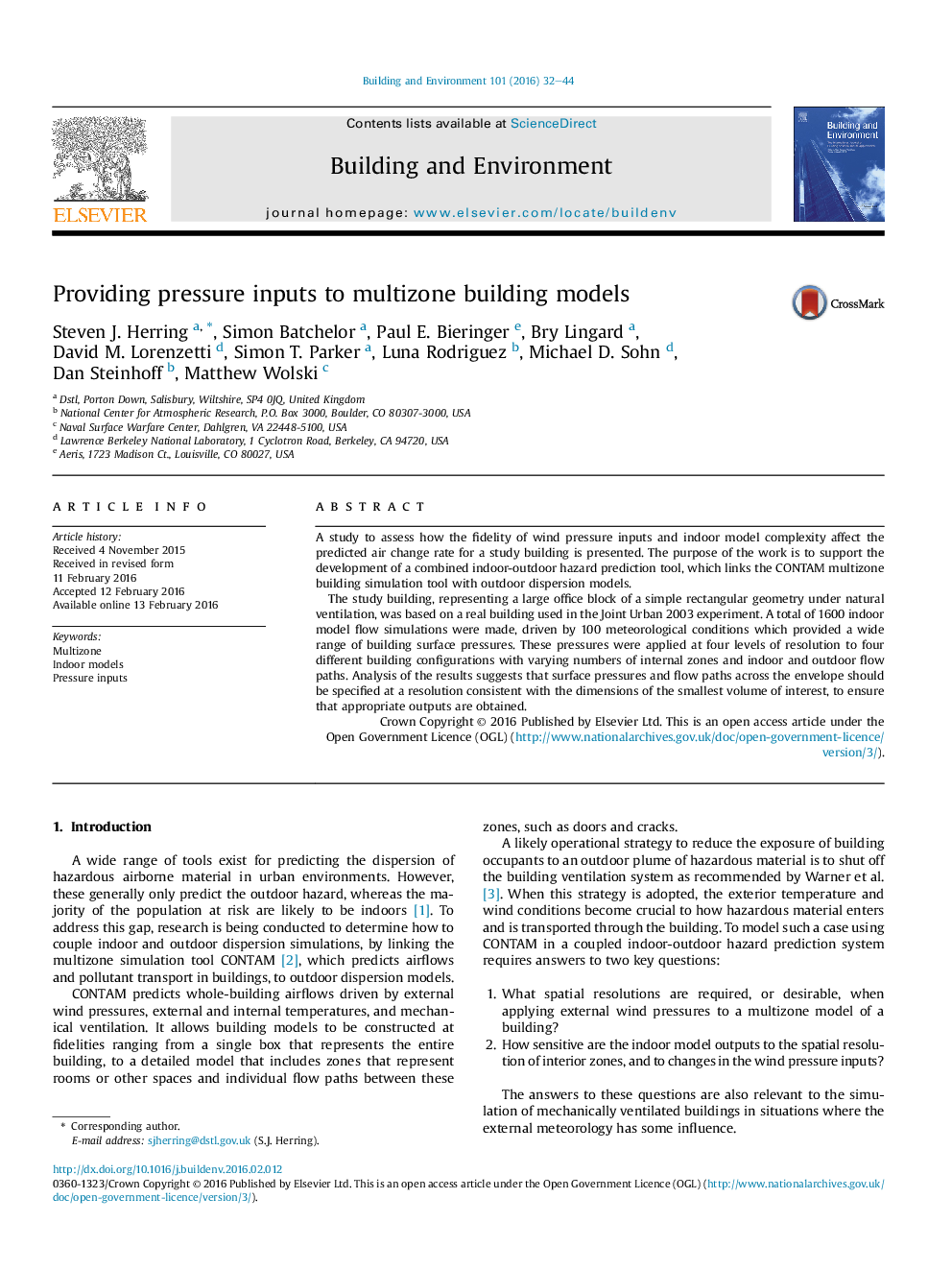| Article ID | Journal | Published Year | Pages | File Type |
|---|---|---|---|---|
| 6699338 | Building and Environment | 2016 | 13 Pages |
Abstract
The study building, representing a large office block of a simple rectangular geometry under natural ventilation, was based on a real building used in the Joint Urban 2003 experiment. A total of 1600 indoor model flow simulations were made, driven by 100 meteorological conditions which provided a wide range of building surface pressures. These pressures were applied at four levels of resolution to four different building configurations with varying numbers of internal zones and indoor and outdoor flow paths. Analysis of the results suggests that surface pressures and flow paths across the envelope should be specified at a resolution consistent with the dimensions of the smallest volume of interest, to ensure that appropriate outputs are obtained.
Keywords
Related Topics
Physical Sciences and Engineering
Energy
Renewable Energy, Sustainability and the Environment
Authors
Steven J. Herring, Simon Batchelor, Paul E. Bieringer, Bry Lingard, David M. Lorenzetti, Simon T. Parker, Luna Rodriguez, Michael D. Sohn, Dan Steinhoff, Matthew Wolski,
